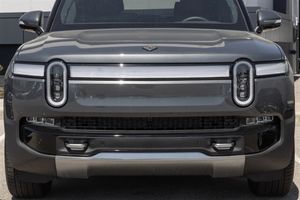-- In 2025, PW Consulting published a comprehensive report analyzing the Stirling Ultra Low Temperature (ULT) Freezers market, offering fresh insights into a technology sector of high relevance within bioresearch, pharmaceutical, and clinical settings. Ultra Low Temperature (ULT) freezers, particularly those based on Stirling engine technology, have become pivotal in storing biological samples, vaccines, and generators of scientific progress at temperatures often reaching as low as -80°C or lower. Their role has grown with demands for energy efficiency, sustainability, and reliability, which traditional compressor-based ULT systems have found increasingly challenging to fulfill. PW Consulting’s report investigates the intricacies of this market through multi-dimensional research lenses, reflecting a comprehensive view of the landscape in 2025.
The report begins with a detailed overview of Stirling ULT technology, delving into its distinct mechanical methodology compared to legacy compressor systems. Stirling engines, based on the principles laid out in the 19th century, deliver cooling using a closed-cycle heat engine that converts heat energy effectively, with fewer moving parts and reduced vibration. This results in higher longevity and a decreased frequency of mechanical failures, substantial factors influencing purchasing decisions among healthcare and research institutions. PW Consulting’s analysts provide technical comparisons, utilizing input from engineering experts and market participants, highlighting Stirling-based design advantages in the context of operational reliability and energy consumption.
Another core section of PW Consulting’s research focuses on the regulatory environment and compliance considerations critical to any manufacturer or user of ULT freezers. Bio-pharmaceutical enterprises are subject to rigorous standards from organizations such as the FDA, EMA, and international regulatory bodies governing sample and vaccine storage. The report explores how Stirling ULT freezers adapt to these evolving requirements, considering recent updates in good manufacturing practices (GMP) and best practices for storage environments. Through interviews and document analysis, the research team identifies how these freezers facilitate compliance through stable temperature integrity and advanced monitoring features.
The application spectrum for Stirling ULT freezers is a major focus, running across academic institutions, biobanks, pharmaceutical manufacturers, hospital laboratories, and advanced clinical research facilities. Market analysts compiled insights from ongoing trends in gene therapy, cell-based research, and vaccine development, all of which underscore the necessity of ensuring sample viability over extended periods. Stirling ULT systems are singled out for their contribution to the storage of sensitive biological agents, with case studies highlighting their implementation during recent surges in demand for vaccine cold storage and genomic research sample preservation.
One prominent segment of the PW Consulting report evaluates the evolution in end-user requirements. Energy stewardship and greener technology footprints have become central concerns in procurement strategies. Hospitals and universities are increasingly reporting energy cost savings and carbon emission reductions following adoption of Stirling-based ULT freezers, with data sourced from independent audits and sustainability reports. The report illustrates these savings through modeled scenarios and interviews with sustainability managers, placing Stirling units at the nexus of technology innovation and environmental responsibility.
Stand-Alone Motion Control System Market
Competitive landscape analysis plays a key role in the report, dissecting the various vendor offerings and distinguishing key differentiators in product portfolios. ULT freezer manufacturers are ranked based on product reliability, user-interface advancements, after-sales support, and integration with digital temperature monitoring systems. PW Consulting’s team surveyed decision makers in over 20 countries, mapping prevailing procurement preferences and providing critical insights into how Stirling ULT freezers rise to meet the evolving needs of clinical and scientific institutions globally.
Market segmentation forms another backbone of the research. The report categorizes adoption according to geographic region, end-user type, and application area. Analysts uncover regional nuances—such as higher demand for ULT reliability in environments with unstable power grids, a common challenge in emerging markets, and heightened scrutiny over temperature integrity in cold-chain logistics worldwide. The report discusses the influence of regional regulation, government incentives, and public-private collaborations in scaling the use of advanced ULT technologies.
PW Consulting devotes substantial analysis to technology innovation within the Stirling ULT sector, documenting recent advances such as wireless remote monitoring, real-time reporting, and AI-driven predictive maintenance. The research incorporates viewpoints from technology leaders and service engineers, who describe the transformative effects of digitization for lab technicians and biobank managers. By capturing and aggregating data from deployed systems, stakeholders are improving sample safety, reducing unplanned downtime, and optimizing freezer space utilization. The report explores developing partnerships between freezer manufacturers and IoT solution providers, contextualizing future directions for automation and laboratory intelligence.
The report incorporates expert commentary on emerging challenges, such as the limitations of current refrigeration fluids and the sustainability pressure on cooling technologies. Environmental experts and industry engineers are interviewed regarding refrigerant alternatives and regulatory initiatives aimed at phasing out high-impact greenhouse gases within laboratory environments. Stirling ULT freezers—often utilizing less harmful refrigerants—are featured as part of a broader movement toward eco-conscious laboratory equipment. The report provides a technical roadmap for manufacturers as they innovate toward compliance with forthcoming international environmental standards.
Given the vital role of ULT freezers in medical responses, the report includes an analysis of disaster recovery protocols and business continuity planning within hospitals and biobanks. Stirling ULT models are evaluated for their performance in backup power scenarios, periods of extreme ambient temperature fluctuation, and extended outages. Disaster management experts describe best practices in redundant cold-storage design and staged freezer deployment. The research highlights real-world case studies where Stirling ULT freezers protected millions of dollars in critical biological materials amid infrastructure disruptions.
Human-centered design aspects also receive attention, with laboratory professionals and maintenance technicians weighing in on ergonomics, noise levels, and ease of maintenance for Stirling ULT systems. Usability research suggests that improved user interfaces and remote monitoring capabilities are reducing labor overhead and lowering the risk of user error. PW Consulting’s analysis interprets field data on service intervals, incident reports, and technician satisfaction, drawing a comparative line between Stirling-powered units and conventional alternatives.
Pricing strategies and financial considerations are detailed in a segment dedicated to procurement case studies and total cost-of-ownership analysis. The report models long-term cost impacts for end-users, going beyond upfront unit prices to consider savings in electricity consumption, repair costs, and extended lifespan. Procurement officers and financial analysts contribute perspectives on ROI calculation, insurance factors, and the integration of ULT freezer operating costs within overall laboratory budgets. A comparative pricing breakdown helps to illuminate value propositions increasingly favored by research institutions and hospitals that invest in Stirling ULT solutions.
Finally, the report synthesizes feedback from global stakeholders on the future outlook of the sector, integrating expert predictions on the directions of R&D, market expansion drivers, and anticipated regulatory changes over the next decade. Thought leaders from biopharma, academia, and clinical research share their views on the persistent challenges of ultra-low temperature storage and the strategic imperatives pushing laboratories toward adopting innovative solutions. PW Consulting delivers a framework for ongoing risk assessment and technology planning, equipping facility managers and decision-makers with the strategic context necessary for long-term investment in Stirling ULT freezer systems.
Contact Info:
Name: Lacy Lee
Email: Send Email
Organization: PW Consulting
Phone: 00852-95632430
Website: https://pmarketresearch.com/auto/stirling-ultra-low-temperature-ult-freezers-market
Video URL: https://pmarketresearch.com/auto
Release ID: 89168524
In case of identifying any errors, concerns, or inconsistencies within the content shared in this press release that necessitate action or if you require assistance with a press release takedown, we strongly urge you to notify us promptly by contacting error@releasecontact.com (it is important to note that this email is the authorized channel for such matters, sending multiple emails to multiple addresses does not necessarily help expedite your request). Our expert team is committed to addressing your concerns within 8 hours by taking necessary actions diligently to rectify any identified issues or supporting you with the removal process. Delivering accurate and reliable information remains our top priority.





